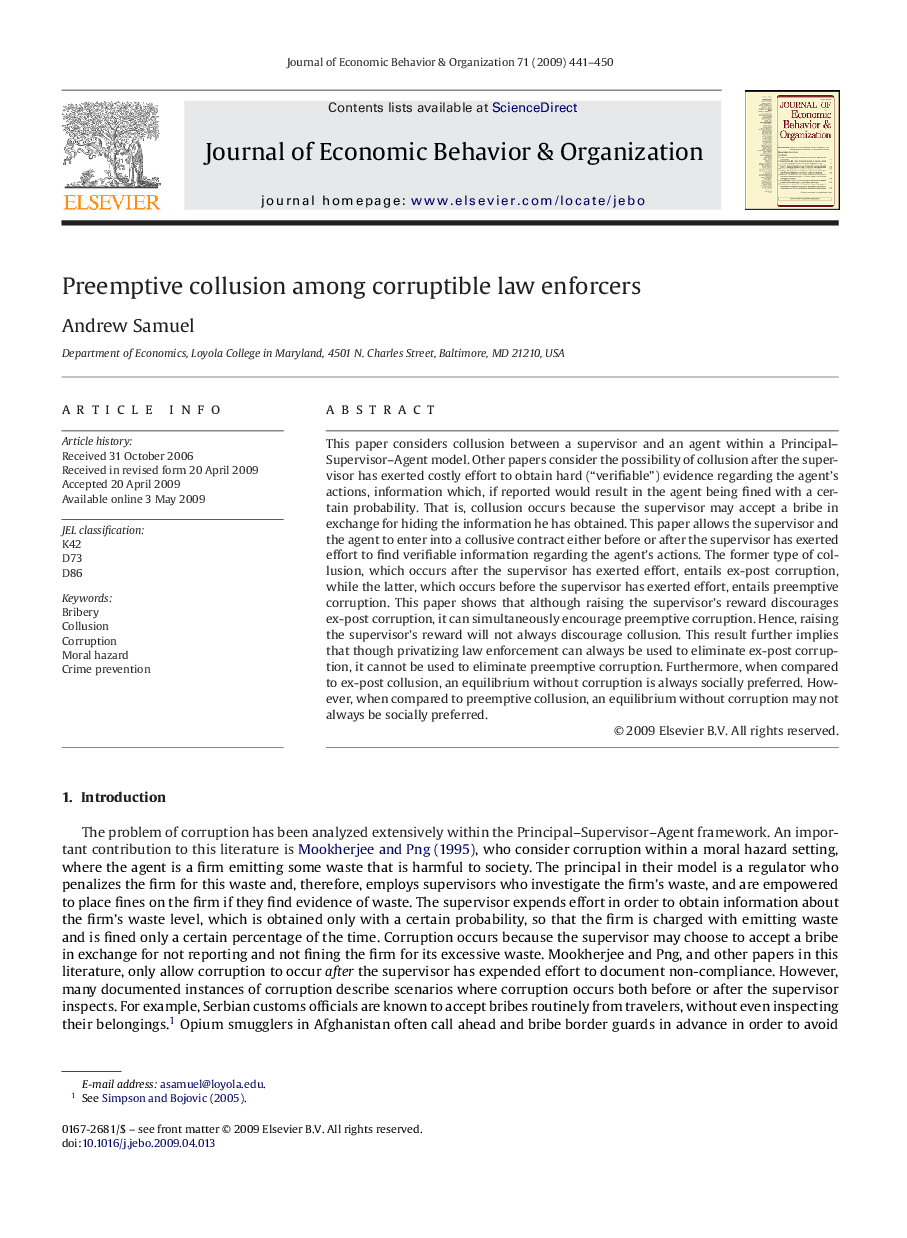| Article ID | Journal | Published Year | Pages | File Type |
|---|---|---|---|---|
| 884272 | Journal of Economic Behavior & Organization | 2009 | 10 Pages |
This paper considers collusion between a supervisor and an agent within a Principal–Supervisor–Agent model. Other papers consider the possibility of collusion after the supervisor has exerted costly effort to obtain hard (“verifiable”) evidence regarding the agent’s actions, information which, if reported would result in the agent being fined with a certain probability. That is, collusion occurs because the supervisor may accept a bribe in exchange for hiding the information he has obtained. This paper allows the supervisor and the agent to enter into a collusive contract either before or after the supervisor has exerted effort to find verifiable information regarding the agent’s actions. The former type of collusion, which occurs after the supervisor has exerted effort, entails ex-post corruption, while the latter, which occurs before the supervisor has exerted effort, entails preemptive corruption. This paper shows that although raising the supervisor’s reward discourages ex-post corruption, it can simultaneously encourage preemptive corruption. Hence, raising the supervisor’s reward will not always discourage collusion. This result further implies that though privatizing law enforcement can always be used to eliminate ex-post corruption, it cannot be used to eliminate preemptive corruption. Furthermore, when compared to ex-post collusion, an equilibrium without corruption is always socially preferred. However, when compared to preemptive collusion, an equilibrium without corruption may not always be socially preferred.
